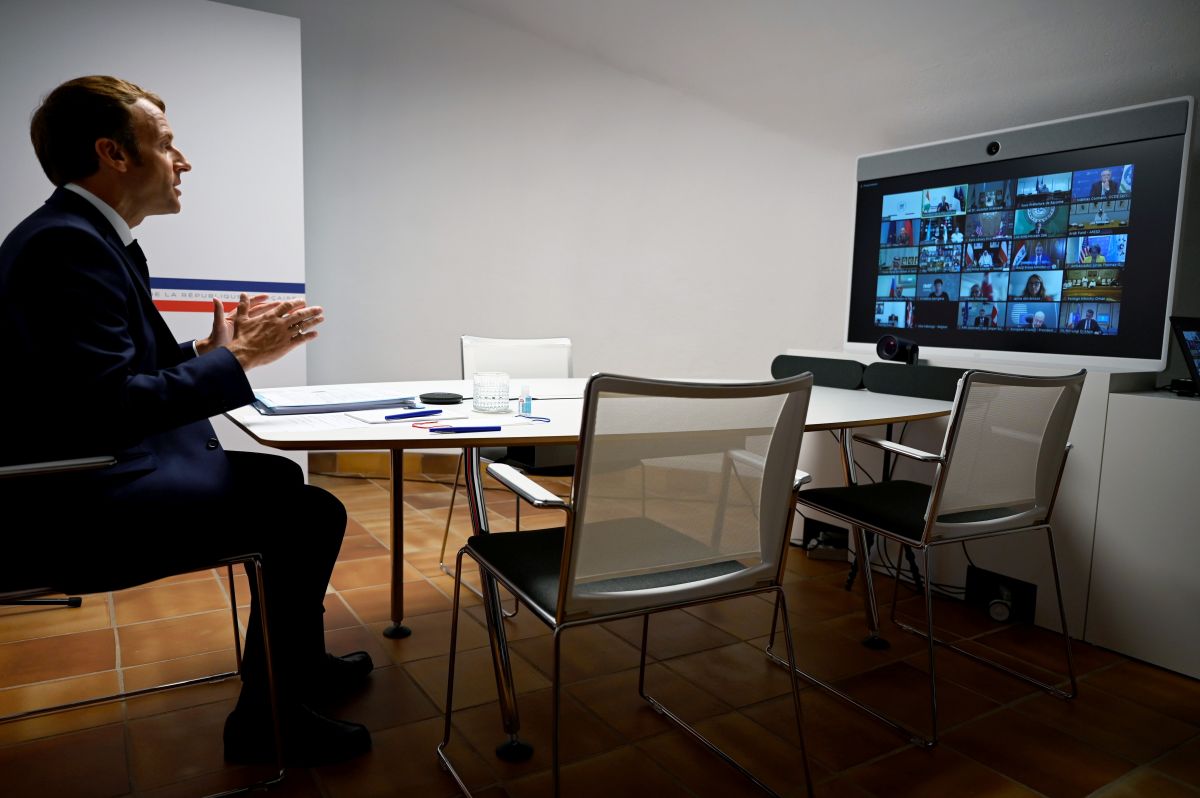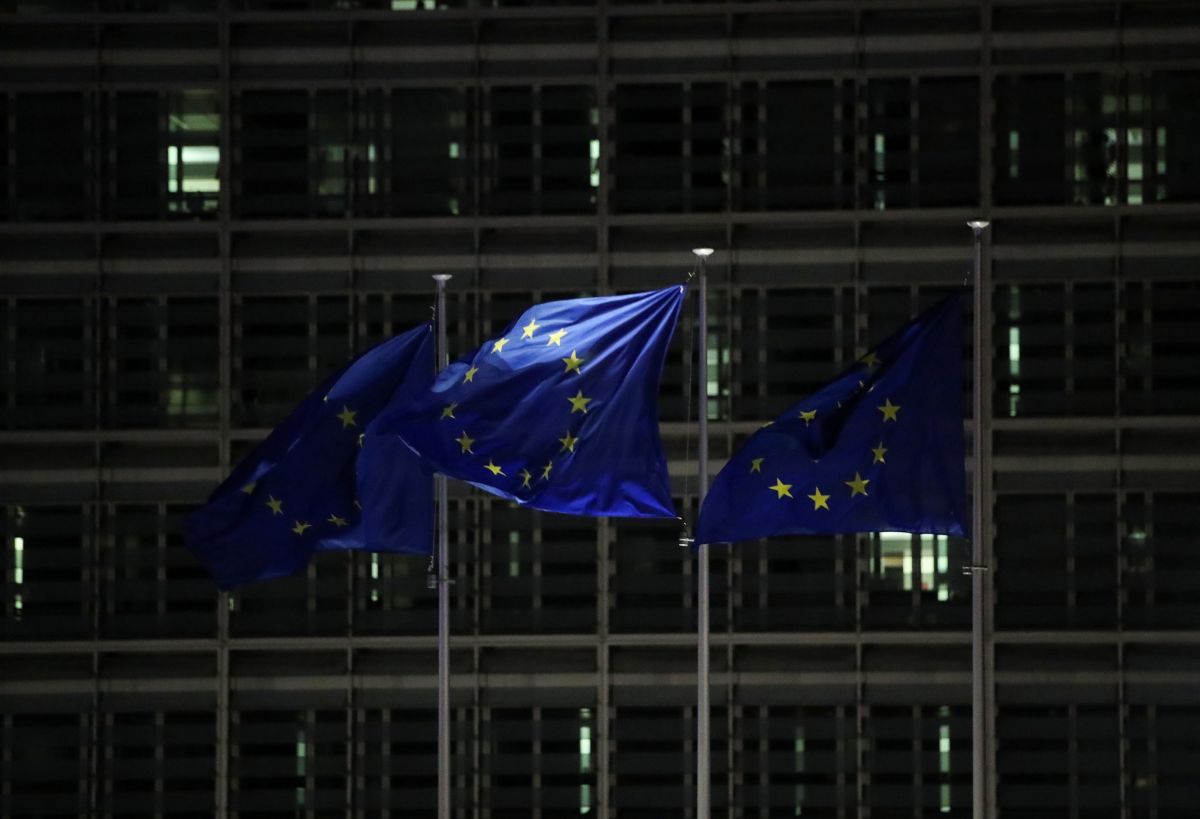Elections and Presidency: Priorities of French EU Policy
The French presidency of the Council of the EU, which will be in the first half of 2022, will coincide with the presidential and parliamentary campaign in that country. President Emmanuel Macron’s goal is to convince voters that he effectively supports the interests of French businesses in the EU and is laying the foundations of the EU’s superpower status based on the Franco-German tandem. The electoral context may make the EU a hostage to internal politics in France. Certain French demands, such as deepening social integration, will increase divisions in the Union.
 Fot. POOL/Reuters
Fot. POOL/Reuters
Electoral Context
Presidential elections in France are scheduled for April 2022, and parliamentary elections for June 2022. Both events will take place during the French presidency of the EU Council. Macron’s rejection of the possibility of switching the term of the presidency with another Member State proves that he treats it as the culmination of his first term as French president. Part of it was reform of the EU, postulated since his speech at the Sorbonne in 2017.
Macron believes that his activity in the EU, including the revision of the posted workers Directive or defence initiatives, strengthens the international role of France. Highlighting these achievements during the campaign is supposed to translate not only into an increase in support for his presidency but also into Euro-enthusiastic moods in France. Macron hopes that the risk of Marine Le Pen’s victory will induce partners in the EU to support the goals of the French presidency.
Although the announced presidency’s slogan—“Recovery, Power, Belonging”—testifies to the will to deepen integration, especially in the area of economy and security, the French authorities have not disclosed its detailed plan so far. Waiting for the emergence of a new coalition in Germany after the Bundestag elections in September, they are conducting consultations with selected states. These include the countries of the southern part of the EU, but also, for example, the Czechia, which will take over the presidency from France.
Economic Interventionism
According to a 2019 survey by the BVA group, 57% of French support deepening EU integration in the social dimension. The goal of Macron, who pushed domestic policy reforms to increase the competitiveness of the French economy, is to convince voters that this effort is accompanied by the EU’s withdrawal from budgetary rigour. The pandemic has therefore intensified French criticism of the fiscal restrictions contained in the Stability and Growth Pact. The French presidency may propose that expenditure on development investments should be excluded from the budget deficit calculation. At the same time, the French government draws attention to what it perceives as “fiscal and social dumping in the EU”, which may put the discussion about a European minimum wage at the centre of attention.
A tool for building European industrial power, in French eyes, is common debt. French Secretary of State for EU Affairs Clément Beaune said that an effect of the NGEU recovery plan should be reinforced by a 10-year investment plan, financed also by common debt. The French government fears that too modest aid for European industry may reduce its chances in the global race with American and Chinese competitors.
More than 70% of French supported in 2019 an active role for the EU in the global economic power competition. Therefore, a priority of the French presidency may be to increase the number of European “champions” among the largest global companies. France has technological advantages in industries such as defence, aviation, space, and non-carbon energy sources. However, French companies are not competitive enough (e.g., due to high labour costs), which is supposed to justify the relaxation of EU state aid rules and anti-monopoly regulations. In recent years, France has successfully sought the support of Germany and other states for reform of EU policy in this direction. However, ecology remains a controversial point: France wants to save its nuclear industry by including this energy source in the EU’s “green taxonomy”. It will also try to water down those aspects of the EC’s “Fit for 55” initiative that would affect France’s economic growth (e.g., the extension of the ETS to construction and road transport).
The EU as a Superpower
Macron wants the ongoing work on the EU’s “Strategic Compass” to be completed during the French presidency. French Armed Forces Minister Florence Parly stated that the aim of the Compass is to provide the EU with a “road map of its sovereignty”, which is in line with the French understanding of EU strategic autonomy. Although Parly wants to look for the “lowest common denominator” in the defence policy priorities of the 27 EU countries, in practice France aims, among others, to abolish the requirement of unanimity in voting on security and defence matters in the Council of the EU, which is opposed by some states.
France is also seeking to coordinate EU military missions with the ongoing Takuba and Barkhane operations in the Sahel, which were initiated by France. By focusing the attention of the EU on the Mediterranean and Africa, France hopes to reduce its own military involvement there due to its unpopularity with the French. Macron presents the military presence of other EU countries in Africa as support for his ambitions to build a European “superpower”, even if it is problematic for some of the participants in these missions.
It will also be important for the French presidency to jointly combat hybrid threats, especially in cyberspace. Parly stresses the need to develop implementing procedures for the provisions contained in Art. 42.7 of the Treaty on European Union, the so-called mutual defence clause, also in the case of non-military aggression.
The French concept of the “EU as a superpower” does not include a clear answer to how the EU is to react to Russia’s aggressive attitude. The attempt to poison Alexei Navalny, Russia’s support for the pacification of protests in Belarus, and the demonstration of force on the Russian-Ukrainian border in spring 2021 did not induce France to adjust its conciliatory policy towards Russia. This is evidenced by the initiative taken by France, together with Germany, in June this year to propose a meeting of the European Council with the Russian president. France is also downplaying the provocations of the Russian side against France itself (e.g., its actions in Africa). During the EU presidency, Macron may come up with further initiatives for dialogue with Russia.
French goals in EU-China relations are also inconsistent. In December 2020, France, after some hesitation, backed the conclusion of the investment agreement with China (CAI) pushed through by the German presidency. The ratification of the CAI under the French presidency would emphasise the strategic dimension of the Franco-German tandem. However, Macron may have problems with gaining support for the deal from MEPs in his own camp. France’s military, economic, and political ambitions in the Indo-Pacific can also complicate EU-China relations.
Conclusions and Prospects
The combination of France’s presidency of the Council and the election campaign in the country, along with selective consultations and controversial postulates, indicate that it may base its presidency strategy on polarisation, affecting selected Member States perceived by Macron as Eurosceptic or excessively attached to budget discipline and the freedoms of the EU market. The effectiveness of this approach will be determined by Germany’s attitude to the French demands, the EU’s level of fear of populist moods in France, and the emergence of alternatives to French concepts for the economic and geopolitical future of the EU. The challenge for Central Europe will be to defend the freedoms of the internal market and cohesion policy at the same time.
Poland may express support for some of the French priorities, such as increasing the independence of the EU by diversifying supply chains, building resilience against cyberattacks and other hybrid threats, combating tax fraud, or reconciling the ecological transformation with economic growth. Poland’s participation in the Takuba mission in Mali could take place provided that France increases its military presence in Poland. However, it will be equally important for Poland to build a common position with those EU countries for which it is important to closely align the EU’s defence priorities with NATO’s. It may also be a problem for Poland that its opposition to some of France’s postulates can be associated with an anti-EU attitude.
The possible participation of the Green party in the new ruling coalition in Germany may force the French government to consult Germany again on energy, environmental, and industrial policy and to alter its presidency plans. If the CDU/CSU maintains a strong position, it will make it difficult for France to promote interventionist demands and the concept of the “EU as a superpower”. Although Germany’s stance on budgetary and energy matters is a challenge for the French authorities, Macron believes that France cannot build its influence in the EU through conflict with Germany. Therefore, it will try to maintain the cohesion of the Franco-German tandem, regardless of the result of the Bundestag elections.




